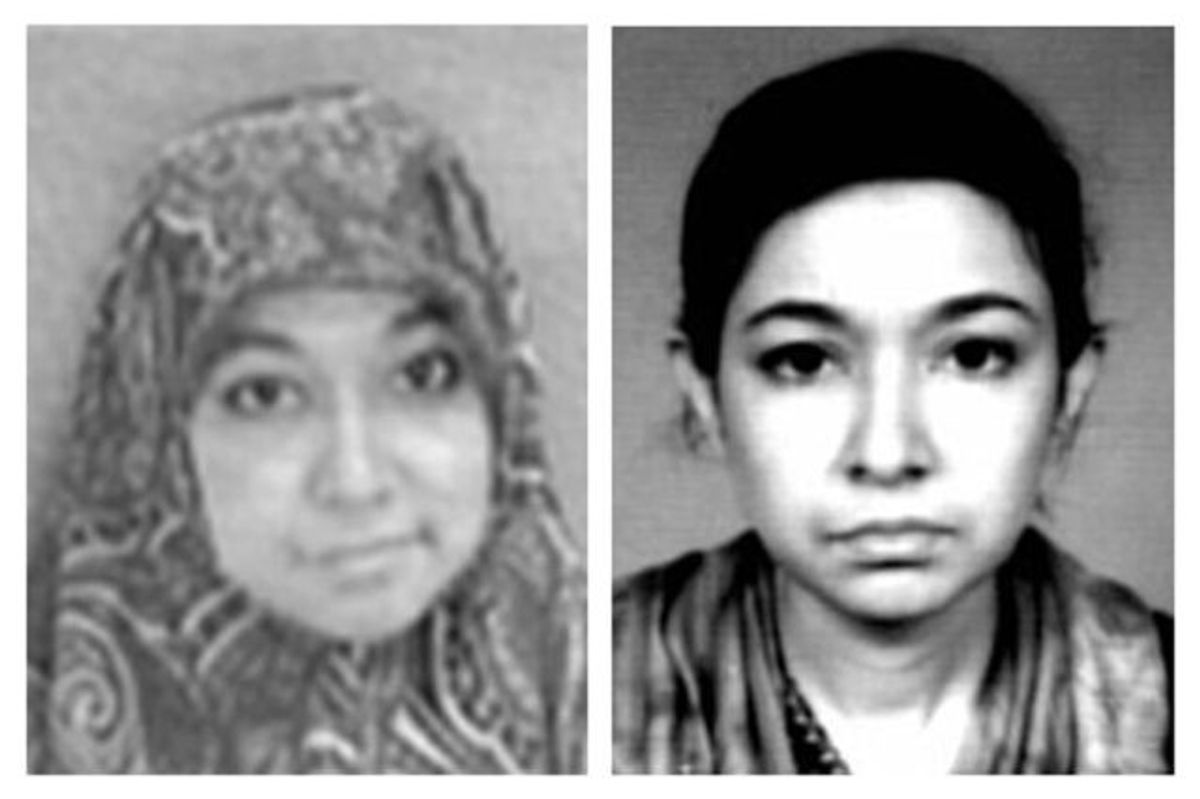Pakistan refuses to join US court proceedings in Aafia Siddiqui case
Justice Sardar Ejaz of Islamabad High Court questions govt decision; demands written explanation

Asma Kundi
Producer, Islamabad
Asma Kundi is a multimedia broadcast journalist with an experience of almost 15 years. Served national and international media industry as reporter, producer and news editor.

Aafia Siddiqui is shown in this FBI combo photo released in Washington on May 26, 2004.
Reuters
The Government of Pakistan has decided not to become a party or offer legal assistance in the ongoing U.S. court proceedings involving Dr Aafia Siddiqui, a Pakistani neuroscientist imprisoned in the United States since 2003.
The decision was revealed during a hearing on Monday at the Islamabad High Court, where Justice Sardar Ejaz Ishaq Khan pressed federal representatives to explain the government's position.
The Additional Attorney General appeared in court alongside the petitioner’s counsel, Imran Shafiq, and other officials. He informed the court that the government has decided not to intervene in the case.
Justice Sardar Ejaz expressed dissatisfaction with a lack of justification. “This is a constitutional court. The government or Attorney General cannot just present decisions without giving reasons,” the judge remarked.
The court directed the Additional Attorney General to submit written reasons for the decision by the next hearing, scheduled for July 4.
'Govt failed to fulfil responsibility'
The move was strongly criticized by former Senator Mushtaq Ahmad Khan, a vocal advocate for Siddiqui’s release, at a media talk held after the hearing.
“The government has clearly refused to be the voice of Dr Aafia Siddiqui in the U.S.,” he said. “They have failed to fulfill their constitutional responsibility and obligations under the Vienna Convention and international human rights standards.”
He accused the current coalition in Islamabad of abandoning the cause.
“This fake Shehbaz-led regime is the biggest obstacle to her release,” he said. “She is innocent, a hafiza of the Quran, and has been sold to the U.S. for merely $55,000.”
Senator Mushtaq also voiced concerns about Siddiqui’s health after more than 23 years in detention.
“Her condition remains in grave danger,” he said, urging the judiciary to assess whether the government’s reasons were legally valid or an excuse to avoid accountability.
Family’s long wait
Siddiqui, an MIT graduate, was formally arrested in Afghanistan in 2008. Authorities claimed she was in possession of bomb-making materials and plans to target U.S. landmarks.
During her interrogation, she allegedly attempted to shoot at American personnel, an incident that led to her conviction for attempted murder.
In 2010, a New York federal jury found her guilty on charges including attempted murder and armed assault. U.S. prosecutors said she grabbed an M-4 rifle and fired at FBI agents and soldiers while shouting “death to America.” She was wounded in the response.
No U.S. personnel were injured in the incident.
However, her family maintains that she was abducted in 2003 while visiting Pakistan with her three children and secretly handed over to U.S. authorities.
At the time of her arrest in Ghazni, Afghan police reportedly discovered sodium cyanide and notes referencing mass casualty attacks and New York landmarks. But she was never charged with terrorism-related offenses, and Siddiqui denies the allegations.
She has three children. Two are living with her sister, Dr Fawzia Siddiqui, a longtime advocate for her release. The third child remains unaccounted for. All have spent most of their lives separated from their mother.
A case under scrutiny
Siddiqui’s imprisonment has remained a highly sensitive and political issue in Pakistan.
Last year, Prime Minister Shehbaz Sharif wrote to then-U.S. President Joe Biden, appealing for Siddiqui’s release on humanitarian grounds.
Despite repeated calls from Pakistani officials and human rights advocates, the U.S. has maintained a firm position on her conviction and sentence.










Comments
See what people are discussing